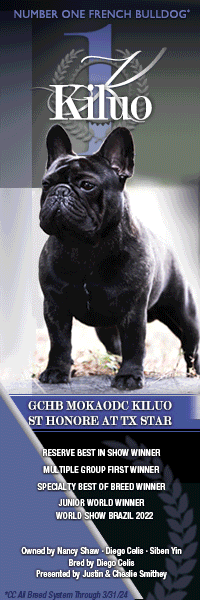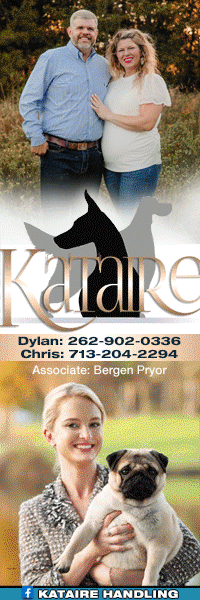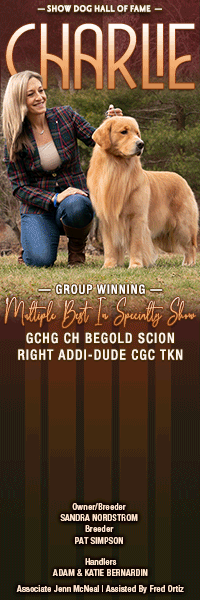A Pause for Reflection

by Chris Robinson
Generally my monthly contribution to The Canine Chronicle at least makes a stab at looking at the lighter side of dog ownership and some of the things that go with that including the people with which it brings a person in contact. But the difficulty in writing humor of any kind is that the writer has to be in the right frame of mind to successfully do it. Sadly, at the moment, that is a difficult state to achieve because I lost two old, dear friends in the last month, one, a four-footed pal, to the infirmities of age and the other, who is not dead but is “gone” in every other sense of the word except physically, to the ravages of Alzheimer’s Disease. This is something of a tribute to both.
When Robert Burns wrote his ode to love and friendship in times past in 1788 which he titled”Auld Lang Syne,” he likely did not mean the love, friendship and memories of hunts long ago and not so long ago that hunters have had with their old hunting dogs and old friends. When you realize that you have seen the last hunt for the dog or your human hunting partner, the memories become all the more poignant.
There is something very special about watching professional old dogs do their job. There is the pure joy of seeing dogs do their work with no wasted effort and the consummate skill perfected by hundreds of retrieves. But it is also an experience tinged with sadness because you know it is the last time you’ll see the dogs performing at their best or even performing at all. Bob personified the qualities I admire most in dogs, loyalty and love for humans. In Bob’s case, all of his love and devotion, which was considerable, was focused on me and that was the case from his first tottering steps as a pup until his very last at just a couple of months short of 13 years. Losing any dog is bad but losing an old dog that has been at your side and everywhere else you went for very nearly 13 years is about as bad as it gets and there are times when the pain is nearly unbearable.
The bond between humans and dogs is closer than it is between humans and any other animal. They were the first animals humans domesticated to help us hunt. We needed their skills to enable us to successfully gather meat for the table. We still do, those of us who continue to hunt, although the skills of the dogs and the hunters are no longer a matter of feast or famine for either the dogs or the hunters.
For all the historians’ and anthropologists’ talk about how harnessing fire or inventing the wheel or the development of metals being the catalyst that changed man from being a footloose nomad to one that lives in societies, one very important tool that led mankind out of caves has been overlooked and that was their dogs.
On what was to be Bob’s last hunt last October in Saskatchewan, I had decided he was going along on this trip merely for the ride and all I intended to allow him to do was make a few easy retrieves, just so he’d feel like he had done his job. That resolve lasted less than 15 minutes after the beginning of shooting time on the first morning. My nephew knocked down a white-fronted goose (specklebelly) which landed not far in front of me. Since it was clearly not dead, I shot it again. That appeared to have finished the job so Bobby was sent for the retrieve. When he was within about 10 yards of the bird, the goose’s head came up again and it was off to the races at an angle which made a second shot impossible. He chased the wounded goose almost all the way across the slough which was nearly a quarter mile wide, despite my best efforts to call him off the bird, until it began diving to escape. Bob stayed with the goose for a long time but never got close enough to dive after the bird and finally, the goose did not resurface which meant that Bob had the long swim back with no trophy. Fortunately, while he was on the way back, one of the other hunters in the group shot a snow goose which he was able to pick up so the lengthy swim was not a total loss in his view.
I figured that would be the last retrieve of the week for him as I knew the exertion likely would leave him lame, stiff and fit only for days of rest on the foam pad in his crate. Plus he was beginning to show the signs of chronic pulmonary obstructive disease that would ultimately end his life. However, I hadn’t reckoned on his toughness and pride which would not allow him to quit even though he must have been plenty sore because he needed help to get up on the bed in the motel for a couple of nights. He more than earned half of the meatloaf sandwiches in my pack sack as he made many retrieves after the aborted goose chase. His skill at marking blind falls accurately never ceased to thrill and amaze. Who says old dogs can’t show you new tricks as he did some things I’d not previously seen him do in all the years he’d been hunting with me including, on what was to be his last retrieve, fetching a goose that I never saw go down and he could only have seen the tiniest part of its fall. But, he insisted that there was a bird down despite my numerous “no bird” commands. When I finally gave in and released him, he buttoned the mark.
His considerable skills in the field, however, were not the main reason he was so special. Nor was he the most titled dog I’ve ever owned. Rather it was his ability to understand me at a level that was, at times, just plain scary. While I often asked a lot from him, he needed nothing in return except love and regular meals. There is no way I can fully express the joy and comfort he brought to me and no way to describe what an amazing dog and pal he was. Death is a part of life although it is not something we’re always ready to accept. But, I had made Bob the same promise I’ve made to all my dogs: I won’t let you suffer and you deserve a dignified end. When his COPD problems suddenly worsened and the medication was not controlling the problem, I kept my promise even though it has left a Bob-sized hole in my heart. Rest in peace, old buddy. You earned it.
While Dan is still around, at least physically, all that remains is a shell of this former United States Marine Corps Major, life-saving helicopter pilot for dozens of wounded Marines and GIs in Vietnam, defender of the nation as a Marine and later in the Army National Guard and of the wildlife and forests in the State of Minnesota as a conservation officer. Alzheimer’s has robbed him of the things that were the essence of Dan. Whoever said “Life is unfair” was certainly correct in Dan’s case. A superb raconteur—I often said that when Dan started to tell a story, I always listened closely because it was bound to be good even though it frequently bore little resemblance to what I had actually witnessed—it is incredibly painful to see this intelligent man no longer able to put together a coherent sentence. A true take-charge guy who personified the Marine Corps mantra that “Marines don’t ask for help, they are the help” it is unbelievably sad to see him having to depend on others for the most basic of human activities. I have often written about my adventures with “The Major” as Dan was one of the most colorful characters I’ve had the pleasure of knowing, despite his disturbing tendency to sing Marine Corps cadence songs at 0400 hrs, and over my many years as a reporter, I’ve met quite a few who qualified as “colorful.”
Dan was one of my hunting partners for nearly 20 years during which I spent a considerable amount of time shaking my head in wonderment, bewilderment or total disbelief but I never nodded off from boredom. While the beginning of our friendship was prosaic enough—he was looking for a pup and I had a litter that contained way more puppies than I could keep—had he been anything less than a true “Oorah” Marine with a Marine’s love of being wet, cold and muddy, it would have ended at the first encounter. For when he bent over to pick up something from the yard, one of my dogs picked up a full five-gallon pail of cold water fresh from the well and dumped it down his back. This led to the discovery that while the 6-foot-4-inch Major was nearly as nimble as Fred Astaire, what he lacked of Fred’s debonair sophistication, he more than made up in vocabulary although I seriously doubt you would have heard any of the words he used in the more than 50 movies in which Fred appeared.
Over the years I hunted, trained dogs, judged hunt tests and shared social occasions with Dan and his bride. I also saluted him on occasions although in more than a few instances, since this is a family publication, it is best left to your imagination as to how the salute was rendered. It first began to dawn on me that Dan was not your everyday, run-of-the-mill hunting partner on a lake in Saskatchewan. The objective for the hunt was an island around which the ducks buzzed like so many bees around the hive. The transportation to the island was to be Dan’s duck boat which was approximately the size and shape of a Los Angeles-class submarine. As I looked at the imposing figure of Dan at the stern with his hand on the tiller, it reminded me of the painting by Fred Roe of Admiral Sir Horatio Nelson bidding farewell to well-wishers at Portsmouth prior to the Battle of Trafalgar in the Napoleonic Wars. So, in my best Bull Halsey tones, I ordered, “Shove off, Coxswain.” Not a wise move as it turned out because it caused Dan to flashback to his days as a hell-for-leather chopper pilot.
The island held two large muskrat houses on one side and plenty of cover for the “Los Angeles” on the other so in a fit of altruism I volunteered to cover the muskrat house side. I have often hunted from muskrat houses and, in the past, have found them to comfortable and reasonably dry shooting platforms. Not this time. It was obvious from the second time I had to jump off the house to handle the dog to a downed duck that the muskrat construction boss on this project had not done well in structural design courses because the house disintegrated into a mass of floating reeds. This meant I had to spend the rest of the hunt standing in a foot-and-a-half of water. This would have been bad enough except that the depth was not uniform. There were holes in the island’s surface which trapped the unwary or distracted such as someone trying to handle a dog to a bird. You also get much colder much faster standing in 40-degree water even wearing insulated boots, particularly if a considerable amount of water has fallen down inside the boots when you stepped in a hole that was too deep for the length of the boot. About the time I detected the onset of hypothermia, the putt-putt-putt of the “Los Angeles” engine sounded in the distance and not nearly soon enough she came around to my side of the island.
After two unsuccessful attempts to scramble aboard—it is exceedingly difficult to jump with boots full of water and your body shaking with cold like you had an advanced case of ague—Dan, in what seemed to be a moment of compassion, tossed his dog ladder over the side. I use the words “what seemed to be” deliberately because when I planted a foot on the lower rung and went to swing my leg over the gunwale, I heard the command, “Belay that!” He went on to assert that used in such manner, the dog ladder constituted a quarterdeck and as such, proper protocol was necessary. To wit: Formal permission to come aboard had to be requested and the ensign saluted.
I had spent enough time around various ships, including warships, to know what constituted a quarterdeck. Trust me, a dog ladder did not qualify. Furthermore, there was no ensign to salute. The only visible objects, other than a couple of empty shell boxes, were some dead ducks draped over the stern sheets. Dan also specified that the salute had to be correct thus anticipating the single digit salute he so richly deserved. I was in no position to argue, for two reasons. The first being that it was a long, cold swim to the nearest shore and second, the captain of a ship is probably the last remaining absolute monarch in the world. What the skipper says is law.
There was also the day I came upon Dan just as he completed a very pretty passing shot on a bluebill. While his dog, named Code of Conduct, swam out to pick up the bird, I cheered the shot with “Great shot, Dan. Where did that bird come from? I never saw it until you dropped it.” Virtually any duck hunter would have answered, “He sneaked down along the weeds and when he saw that raft of coots, he came over to check them out.” Not Dan. Here is his “after action” report: “He was SLOOT down on final, hook down working the meatball to touchdown when he dropped below glide slope, went nose up and experienced ramp strike.” Did you understand that explanation? If it is any consolation, neither did I.
(Ed. Note: A translation of Dan’s report: He (meaning the duck) was slow out of turn (SLOOT) on final approach to the coot raft, had his legs and “wing flaps” down heading into the coots when he flared out to land and Dan shot him—”ramp strike” which on an aircraft carrier is something you experience only once since it’s invariably fatal.)
In the three years after I graduated from college I had a fair amount of contact with Navy and Marine Corps F-4 Phantom jet fighter and Huey helicopter pilots. The good ones flying combat patrols were not real tightly wrapped and the most loosely wrapped of all were the guys who flew the medevac missions. Dan was a very good Huey pilot who flew medevac missions during two tours of duty in Vietnam and he never failed to live up to that “not-wrapped-real-tight” reputation.
Judging hunt tests with him was an adventure and he always surprised me. One time, after about a half dozen braces had already run and I was starting to slip in the lazy rhythm of the horse’s walk as we rode toward the breakaway to start another brace, I heard “hup, hoop, hreap, hor” behind me. It sounded for all the world like Parris Island and, for a second or two, it felt like I had tumbled into a time warp. When I turned in the saddle to see who was the drill instructor, I realized it was Dan and he was counting cadence for his horse. He varied his cadence count with singing cadence songs and thus managed to simultaneously confuse and annoy the horse, because although Dan had many skills in a whole host of different areas, he was no threat to either Placido Domingo or Johnny Cash as a vocalist. Indeed, the phrase “Couldn’t carry a tune in a bucket” was an accurate description of Dan’s singing.
On another judging occasion, a pair of German Shorthaired Pointers that were absolute rockets on the course collided on a crossing pattern. Thankfully, neither dog was hurt but a second after the impact I heard the cry “Mayday! Mayday! Mayday! Mid-air! Both pilots down!” It was Dan, issuing the international distress call, one that all Navy and Marine Corps pilots avoid at almost any cost since in their view, it is better to be dead than look bad.
Retriever tests were no different. We once judged a test that was run in the most godawful conditions imaginable. Rain fell for the entire test and it varied between being a cloudburst that would have impressed Noah to damned heavy. It was blown sideways by a really cold wind that had started somewhere north of Hudson’s Bay and picked up steam as it screamed across Lake Superior. It was one of those days when I would have given my best shotgun for a lightning flash or two so we could have had an excuse to call off the test. While I spent much of my time muttering things like “This is ridiculous,” “What insane person dreamed this up?” and “an old Navy master chief once told me ‘Never volunteer.’ I shoulda listened,” Dan was in his element. He chortled, “This is real hunting conditions. Now we’ll see which of these dogs actually hunt and which are the pretenders.” See? Yeah, right. There were numerous times I was unable to see anything through the curtain of rain cascading off my cap and nearly an equal number of instances when I had to hold my breath to avoid drowning.
If there was a way to explain Dan’s live-life-to-the-fullest-every-minute-of-every-day pre-Alzheimer’s attitude, it was not lunacy. Rather there is a saying among military folks who have been in combat, “I have seen the elephant.” This probably dates back to the time of Alexander the Great when his Macedonian warriors defeated the elephant-mounted army of King Porus in the Indus Valley. In modern military parlance, the “elephant” is a synonym for looking death in the eye. When you have “seen the elephant” as many times as Dan did, it almost always ignites a desire to get as much fun out of life as you can and if, in the process, you also created good times for others, so much the better. In this mission, Dan was an unqualified success.
Someone once said that, “The magnitude of our grief when we lose someone special is a measure of the magnitude of the love and blessings we received from them.” The love and blessings provided by Bob and Dan were indeed enormous. So, I salute both and this time, Dan, it is with all four fingers of the right hand extended together.
Short URL: http://caninechronicle.com/?p=3031
Comments are closed











